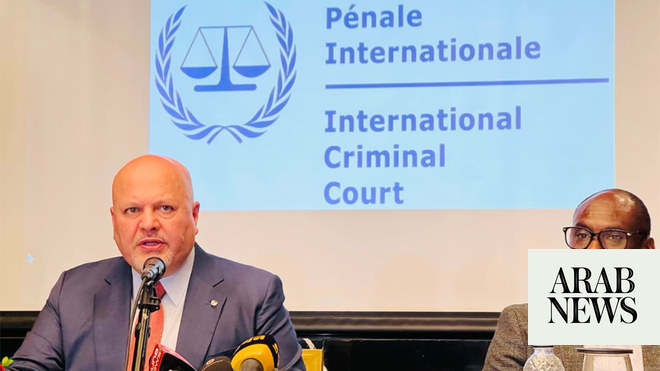
The UN Security Council has remained silent in the face of the Iranian regime’s increasing and egregious human rights violations.
Videos leaked by a hacking group last month revealed abuse, including beatings and other harsh treatment of detainees, carried out in Iran’s most notorious prison, Evin.
In a rare move, the regime admitted the abuse and the head of Iran’s prisons, Mohammed Mehdi Hajmohammadi, apologized. He tweeted: “Regarding the pictures from Evin prison, I accept responsibility for such unacceptable behavior and pledge to try to prevent any repeat of these bitter events and to deal seriously with the wrongdoers. I apologize to God Almighty, our dear leader (Supreme Leader Ali Khamenei), the nation, and honorable prison guards, whose efforts will not be ignored due to these mistakes.”
Such abuses in Iran’s prisons are systemic, but unfortunately the Iranian leaders have enjoyed impunity. Amnesty International, which has analyzed 16 leaked video clips, stated: “Leaked surveillance footage from Evin prison showing appalling abuse of prisoners serves as a chilling reminder of the impunity granted to prison officials in Iran who subject those in their custody to torture and other cruel, inhumane, and degrading treatment.”
It is important to point out that this is not an isolated incident. The regime’s modus operandi is anchored in abuse, the mistreatment of opponents and dissidents, and the employment of brute force and torture. Last month, more than 1,000 survivors of the Iranian regime’s prisons and massacres gathered to recount their horrifying stories to the world. The former political prisoners and witnesses of torture and brutal killings in Iran’s prisons appeared at a virtual conference that was also attended by hundreds of prominent international dignitaries, including foreign ministers and human rights advocates from Europe and North America.
One of the key issues the international community must focus on is putting an end to the culture of impunity enjoyed by regime leaders. It can do this by prosecuting Khamenei, President Ebrahim Raisi, Judiciary Chief Gholam-Hossein Mohseni Ejei and others for their egregious human rights violations.
In one of the most horrific crimes committed by a dictatorship in the Middle East and perhaps the world, Iran’s 1988 massacre saw the clerical regime execute at least 30,000 political prisoners, more than 90 percent of whom were reportedly members of the main opposition group Mujahedin-e Khalq. They were most likely killed because of their political beliefs and commitment to bringing about a free and democratic Iran.
The regime has always wanted to annihilate all opposition to its rule — a devastating trend that has led to a ruined economy, disastrous social conditions, ongoing crimes against humanity, and a massively botched response to the coronavirus pandemic, which has taken the lives of more than 100,000 Iranians.
The 1988 massacre is a clear example of genocide. In 2010, Raisi declared that “All mojahedin are enemies of God and punishable by death.” The regime is particularly concerned about the National Council of Resistance of Iran, a broad coalition of democratic organizations that presents the most popular, credible and organized alternative to its rule. NCRI President-elect Maryam Rajavi, a charismatic Muslim woman, has led an international campaign calling for justice for the 1988 massacre victims and their families. Last week, she tweeted: “The Call-for-Justice movement is synonymous with perseverance and resistance to overthrow this regime and establish freedom.” The group has called on the US and Europe to recognize the 1988 massacre as genocide and a crime against humanity, and to hold Raisi accountable.
The international community, particularly the US and the EU, must now take the lead on this issue. The world must realize that there are no moderates in the Iranian regime and that the Iranian people are demanding its overthrow.
Raisi was, in 1988, part of a four-member “death committee” that issued execution orders for thousands of innocent prisoners. Therefore, no country in the world and no credible international forum must accept him. He must instead be prosecuted and held accountable for his horrific crimes. That is exactly what the Iranian people and the organized opposition have called for.
The regime’s modus operandi is anchored in abuse, the mistreatment of opponents and dissidents, and the employment of brute force and torture.
Dr. Majid Rafizadeh
The UN’s secretary-general, the Office of the High Commissioner for Human Rights, the Human Rights Council, special rapporteurs, and international human rights organizations must be allowed to visit the Iranian regime’s prisons and meet with inmates, especially political prisoners. The regime’s human rights violations must also be tabled at the UN Security Council.
An international investigation into Iran’s human rights violations and the 1988 crimes against humanity is a must. As threats to democracy and human rights increase across the world, the international community should muster the political resolve to punish the perpetrators, who continue to hold senior positions in the Iranian regime.
Otherwise, there will certainly be more massacres and human rights abuses because the regime will perceive international silence as a license to kill.
Dr. Majid Rafizadeh is a Harvard-educated Iranian-American political scientist. Twitter: @Dr_Rafizadeh
Disclaimer: Views expressed by writers in this section are their own and do not necessarily reflect Arab News" point-of-view












